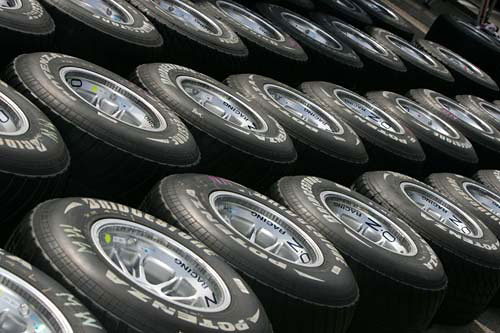
China strongly opposes a U.S. decision made Friday night to impose special protectionist tariffs on tire imports from China, Ministry of Commerce spokesman Yao Jian said Saturday.
Yao said China has held negotiations with the U.S. over the case but the U.S. still sticks to this decision, which is serious trade protectionism, with which China is strongly dissatisfied.
The Ministry said the U.S. had violated the WTO rule by this decision, and also its promise made on the G20 summit.
Yao said China would reserve all rights to take responsive actions to firmly protect the interests of Chinese companies.
U.S. President Barack Obama has decided to impose punitive tariffs on all car and light truck tires from China for three years, a move quickly denounced by China as a "serious act of trade protectionism."
"The president decided to remedy the clear disruption to the U.S. tire industry based on the facts and the law in this case," White House spokesman Robert Gibbs said in a statement on Friday.
The U.S. Steelworkers union, which represents workers at major U.S. tire manufacturers, filed a petition against China earlier this year for import relief and won a favorable ruling from the U.S. International Trade Commission (ITC).
The panel recommended Obama impose a 55-percent tariff on the Chinese tire imports which would be reduced to 45 percent in the second year and 35 percent in the third before being removed.
Obama, who must make a decision on the tire case before Sept. 17, at last set punitive tariffs at 35 percent for the first year, 30 percent in the second and 25 percent in the third, according to the White House.
In Beijing, the Chinese government voiced its strong opposition against the proposed tariffs following the White House announcement.
"China strongly opposes the serious act of trade protectionism by the U.S. side," which not only breached the World Trade Organization (WTO) rules but also broke the U.S. pledges made at the April G20 summit in London, Commerce Department spokesman Yao Jian said on Saturday.
The U.S. move will not solve the slowdown in the U.S. tire industry, which Washington said has threatened the employment of 20,000 U.S. tire workers. Instead it will affect 100,000 tire-related jobs in the United States, Yao said in a statement.
China reserves its right to file a complaint with the WTO against the U.S. tariffs, he added.
The tariffs were also strongly opposed by U.S. tire distributors and retailers, who said the restrictions would raise prices, hurting cash-strapped consumers.
"Tariffs will not create manufacturing jobs in the United States," said Jim Mayfield, president of Del-Nat Tire Corp., which sells private-label tires, including Chinese-made imports.
He said for the past 15 years, major U.S. producers had focused on higher profit and better performing tires instead of what industry insiders call "tier three tires" that service lower end and second-hand automobiles.
With tariffs imposed, the biggest hit would be felt by American consumers who buy 50-dollar Chinese-made tires and can't afford U.S. brands that cost upwards of 150 dollars, warned many distributors.
Some low-income consumers are stretching their tires well beyond their useful life, coming in "with duct wrapped around the tire" to cover fraying steel belts, said Mayfield.
This tire case is seen as a test for Obama's trade policy.
"This is the administration's first real test on trade policy ... they're either going to implement new barriers or not," said Chad P. Bown, an economics professor at Brandeis University.
The protectionist move by the Obama administration will ultimately hurt the U.S.-China trade relations, which are becoming more and more important due to the global financial crisis, some economists warned.
"There is rising protectionism in the U.S. against Chinese goods," said Derek Scissors, a research fellow at the Heritage foundation's Asian Studies Center, noting that the harm will be inevitably passed on to consumers.
"The U.S. must stop taking decisions against China, even small ones, without putting forth an explicit trade policy, which we have thus far failed to do," he told Xinhua.
(Xinhua News Agency September 12, 2009)